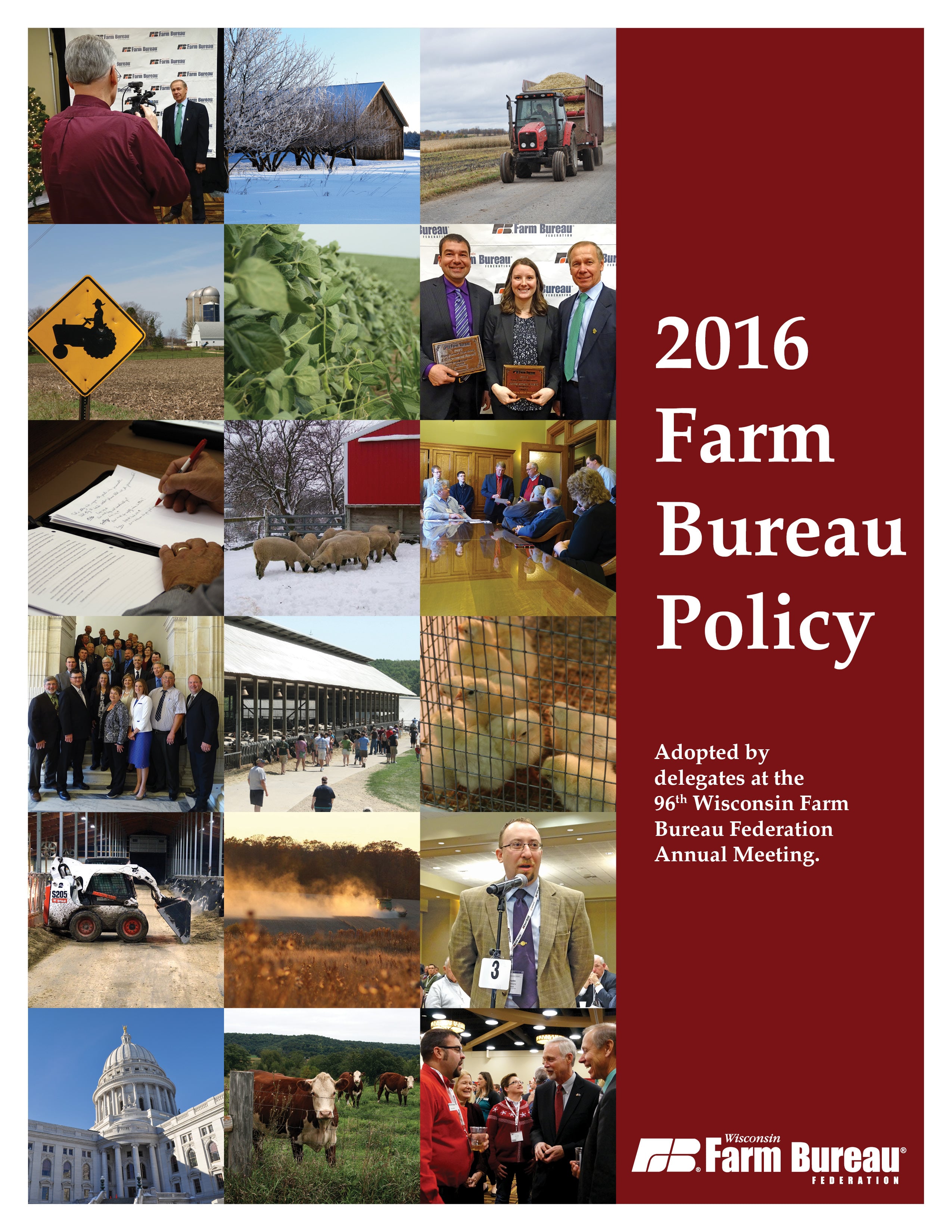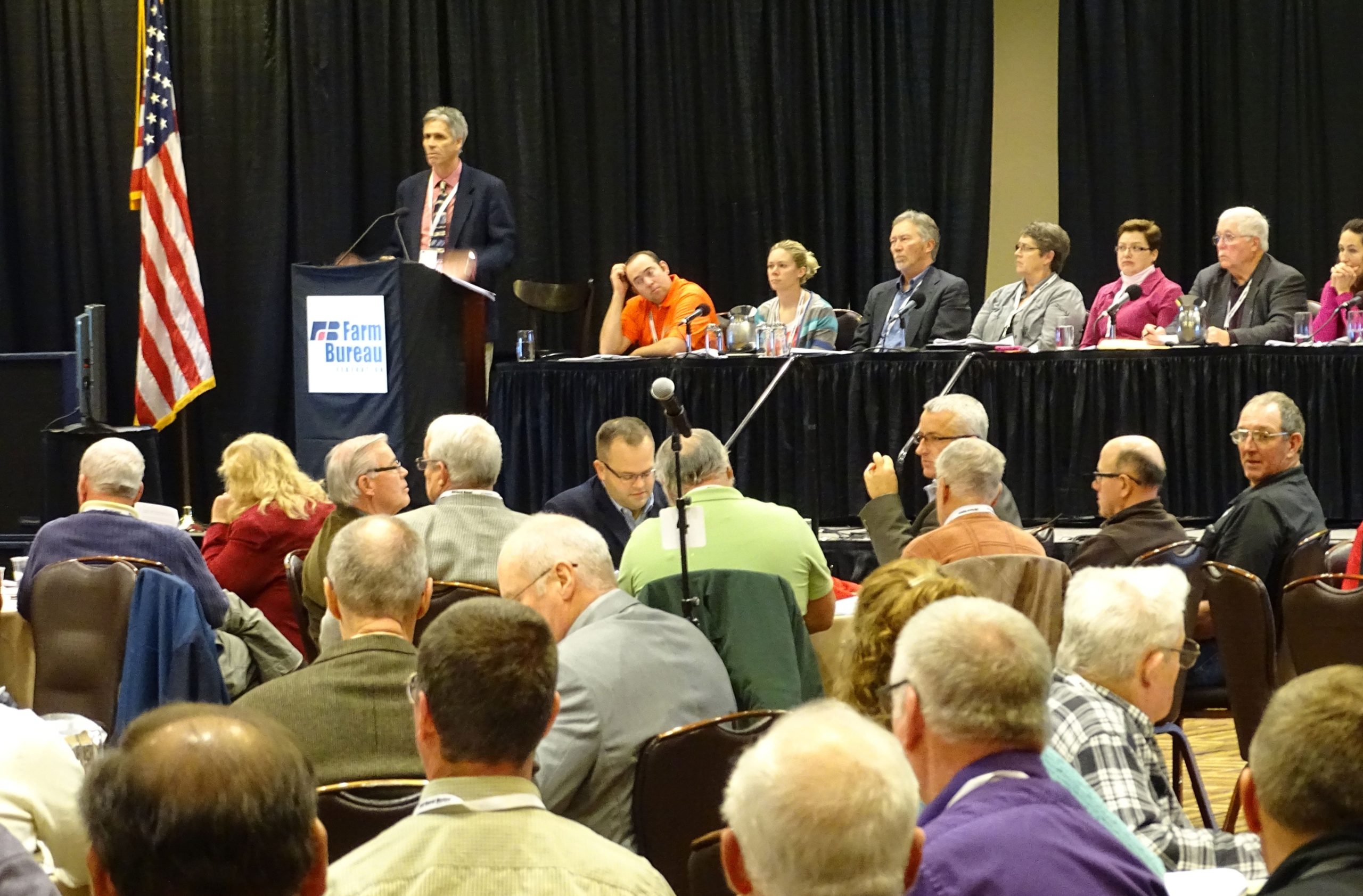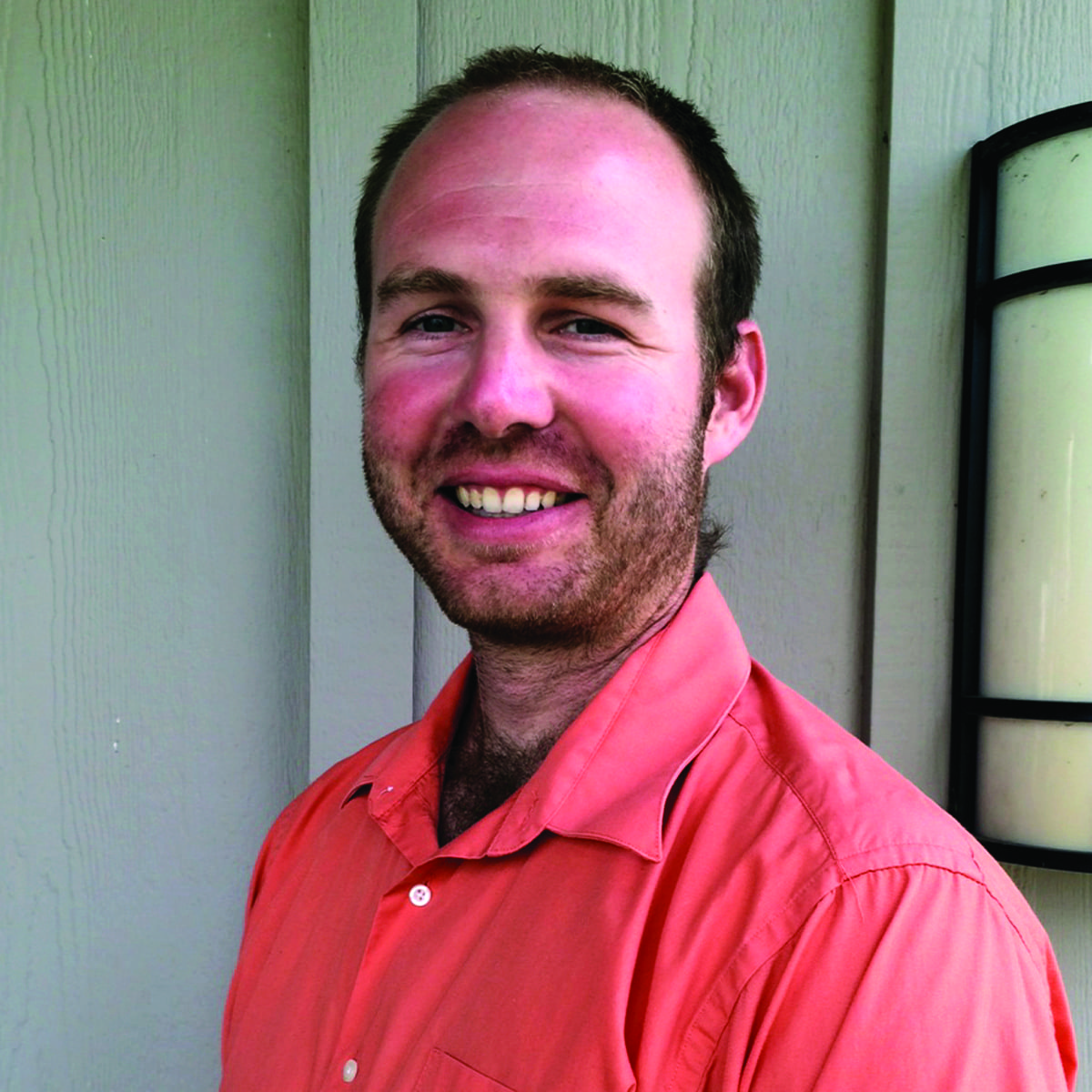It starts with a little prediction and lots of preparation. It’s not always attention grabbing and engaging, but it’s crucial work if we want to keep farming.
Farm Bureau policy is what guides our government relations team in lobbying on the hot agriculture topics and influential bills that are headed for a vote. It’s important and a huge part of what Farm Bureau is all about.
 A team of Farm Bureau members (one from each district) make up the Wisconsin Farm Bureau’s state policy development committee. This committee comes up with the year’s discussion points. Then our lobbing staff gathers the background of each topic to be presented at the policy development meetings held across the state so that people will have all the information before discussion.
A team of Farm Bureau members (one from each district) make up the Wisconsin Farm Bureau’s state policy development committee. This committee comes up with the year’s discussion points. Then our lobbing staff gathers the background of each topic to be presented at the policy development meetings held across the state so that people will have all the information before discussion.
This is where the grassroots of our organization shines. During a county annual meeting there is time set aside for the voting members in that county to submit a draft of a policy they would like seen added to current Farm Bureau policy. If passed at the local county meeting, they are forwarded for further consideration by the policy development committee. The committee combs through hundreds of submissions taking a look at whether it is already in policy or if it should be drafted for a vote on the state Annual Meeting floor. At the state Annual Meeting a group of delegates from each county then vote on the drafts to set new farm bureau policy each year.
So why should you get involved? It seems like a long tedious process, that most young farmers and agriculturalists don’t have time for.
 I need to share a story with you as to why you just might want to get involved. A few years back my wife was elected as a delegate to the annual meeting, meaning she was eligible to vote on the policy changes. The hot topic that year was milk quotas. We were in the middle of a low milk year and everyone was looking for a quick fix.
I need to share a story with you as to why you just might want to get involved. A few years back my wife was elected as a delegate to the annual meeting, meaning she was eligible to vote on the policy changes. The hot topic that year was milk quotas. We were in the middle of a low milk year and everyone was looking for a quick fix.
Several delegates stood and talked about the need to protect their long-term investments on the farm and the inability to keep milking cows with milk prices as they were. There were so many comments to the positive side of a quota system. You could feel the consensus in the room that this was going to pass and become policy.
My wife, a newly elected delegate, scared and extremely nervous, approached the microphone. With appreciation of the elder group of delegates she stated; “I understand you want a quota system, but as a young farmer that just started our own dairy farm, I want you to think about the person you want to buy your farm… They can barely afford cattle, land and equipment; please don’t add the price of the quota.”
The room suddenly changed its attitude. A vote was taken and the draft was stricken.
Sometime we all get tunnel vision. We see what is best for us at the time and not what is best for agriculture as a whole. We need all ages to be involved with the policy development process. Taking in the thoughts and concerns of all members can finish the puzzle, without leaving valuable pieces out.
This year our district is having a policy development meeting the same night as our district Discussion Meet, a popular YFA contest. This will help to encourage our younger members to come to the policy development portion and become part of the grassroots portion of Farm Bureau.
I have enjoyed my time serving on the policy development committee and have a new appreciation of the term grassroots. I have watched ideas grow from a draft to policy that will benefit not only the farmer, but our customers as well. Those policies guide our government relations team, who without, we would still be paging through the hundreds of legislative documents wondering how and why it would change our businesses. It is great to know as I am doing my chores on the farm, we have a team in Madison, using those policies, working just as hard, for us.
Ryan Klussendorf owns and operates a 100-grass based dairy with his wife Cheri. He attended UW-Madison’s Farm & Industry Short Course. Ryan and Cheri have three sons: Kale, Owen and Max. Cheri and Ryan are former Achievement Award winners.



Leave a Reply